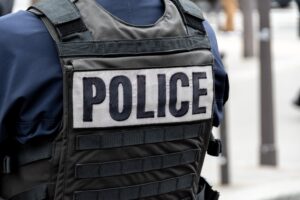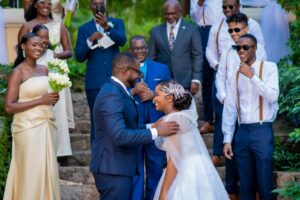
Soldiers faced charges had they refused to go to Keith Clarke’s house
BRIGADIER Mahatma Williams on Tuesday revealed that the three soldiers now on trial for murder in the Home Circuit Court in Kingston in relation to the May 27, 2010 shooting death of accountant Keith Clarke would have been in hot water with the Jamaica Defence Force (JDF) had they refused to go to the accountant’s house where he was later killed.
The three soldiers on trial are lance corporals Greg Tingling, Odel Buckley, and Private Arnold Henry.
“Yes, they would be charged and court martialed,” Brigadier Williams, a witness in the trial, said in response to a question from attorney-at-law, King’s Counsel Valerie Neita-Robertson.
Williams told the jury that security intelligence led soldiers and police to specific locations other than Kirkland Close during their search for Coke.
“For clarity, we went to other locations that the intelligence led us to. I believe we went to a home in Portmore, Hannah Town, Red Hills, and Aboukir in St Ann,” Williams said.
Neita-Robertson quizzed the witness on video footage captured from a JDF helicopter hovering over Clarke’s house at the time of the operation.
She said, “Having been shown this video of happenings on the ground in Kirkland Close, you were of the view that you were well justified in going to Kirkland Close in search of Dudus and gunmen?”
Williams, in responding, told the court that after the operation more than just the video was used to justify going to Kirkland Close, while Neita-Robertson pressed him to say whether he was asked anything about the video by the Office of the Director of Public Prosecutions (ODPP) during interviews.
The army man said he was not asked anything about the video despite giving two statements and being interviewed once by the ODPP.
Neita-Robertson then directed her attention to Judge Dale Palmer, asking him to assist in trying to get prosecutor Jeremy Taylor, King’s Counsel, to agree to the video being admitted into evidence.
“Mr King’s Counsel, is the document agreed?” Judge Palmer asked.
Taylor responded saying, “No, My Lord, it is not.”
Neita-Robertson then said, “Very well. At the appropriate time we will deal with it. They have emphatically indicated that they do not wish to agree to what they received and handed to us.”
Judge Palmer then told Neita-Robertson that it was important to indicate that not everything that was handed over would be admissible.
Neita-Robertson told the judge that the video could be admissible if the prosecutor agreed, but Judge Palmer said, “It is not agreed, so if the maker is I presume available, then we can have it done that way. If it is not agreed, it is not agreed.”

























